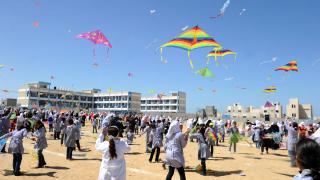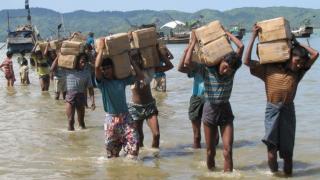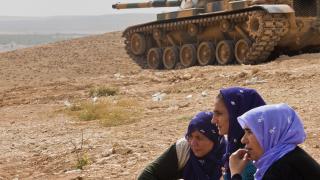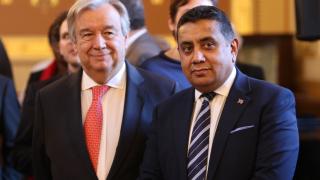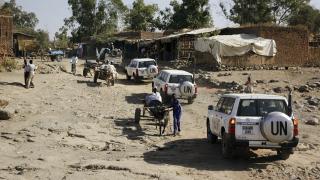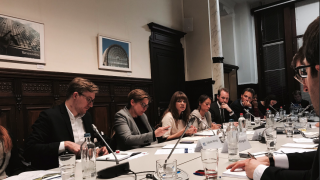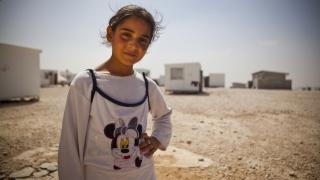
As the crisis in Syria worsens, UNA-UK welcomes recent proposals to place the country’s chemical weapons under international control, and urges all parties concerned to use this momentum to press ahead with a ceasefire, increased humanitarian aid and efforts to secure a political solution.
UNA-UK condemns unequivocally the use of chemical weapons in all circumstances. Recent indications from the Assad regime, under pressure from Russia, that it might accede to the Chemical Weapons Convention (CWC) are to be cautiously welcomed.
It should be recognised that the process of verifying and dismantling these weapons can take several years, especially in the absence of a cessation of hostilities, so the outcome should be a comprehensive, long-term programme for disarmament led by the Organization for the Prohibition of Chemical Weapons, backed by a strong UN Security Council resolution. Perpetrators of chemical attacks identified by the UN weapons inspection team should in due course be held accountable under the Rome Statute of the International Criminal Court, to which the Security Council can refer cases.
As the humanitarian crisis in Syria escalates, UNA-UK urges all parties to the conflict and the international community not to lose sight of the need to protect civilians and to build on the momentum generated in recent days to forge ahead with efforts to secure a political solution. The death toll from the conflict has surpassed 100,000 and earlier this month, the UN Refugee Agency announced that the number of Syrians fleeing the country had topped two million. With over 97 per cent of these hosted by neighbouring countries, the risk of destabilising the entire region grows.
The targeting of civilians by any means, chemical or otherwise, is contrary to international law, and UNA-UK calls on all parties to the conflict to act with restraint, and to refrain from action whereby civilians are put at risk of injury or death. The Syrian regime must recognise and uphold its primary responsibility to protect all populations within its state boundaries, as it has clearly failed to do so far. Action under the Rome Statute may become relevant in this respect also. The international community must recognise that its responsibility to protect cannot be reduced to a choice between military intervention – which risks igniting a regional war – and no action at all.
UNA-UK has advanced support for a multilateral and inclusive international conference on Syria on numerous occasions. The recent exploration of possible cooperation over chemical weapons should be quickly built upon to address the humanitarian crisis in the region and set the foundations for inclusive political talks. As urged in our recent petition, the United States and Russia should set a date for the long-awaited Geneva II conference as soon as possible.
For these wider talks to be a success, they must involve representatives of all parties concerned, as well as representatives of the peaceful majority of Syrians, including minorities, women’s groups and refugees. The talks should also be backed unequivocally by the international community and all relevant regional parties, including Iran, Saudi Arabia and Qatar.
A starting point for discussions should be the scaling-up of humanitarian aid. This should include further aid, and realisation of pledges to UN agencies, which are currently short of over half the funds needed to maintain their life-saving operations. It should also include support to those countries that are under severe strain as a result of having, commendably, kept their borders open to refugees. Negotiating a ceasefire – which would serve the cause of weapons inspections – and stopping the flow of weapons to all parties to the conflict must also be high on the agenda.
Syria’s potential accession to the CWC is an important development – if its stated intentions are genuine, it should be used be a starting point for further cooperation on a comprehensive, long-term humanitarian and political process.
Click here for a round-up of UNA-UK's recent work on this issue
Image: photo shows Farah, aged 10, who has fled the violence in Syria.

